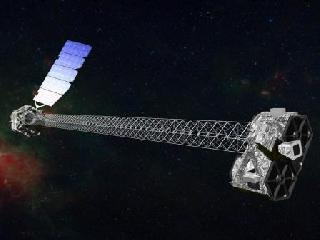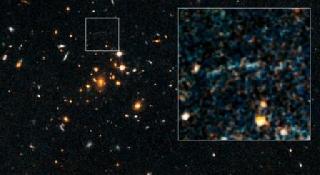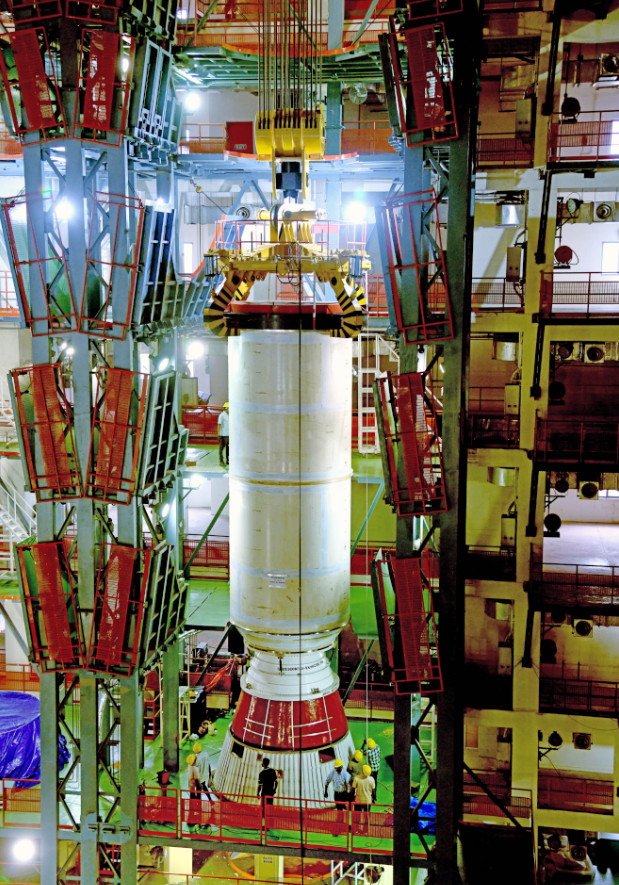
Artist's concept of NuSTAR on orbit. NuSTAR has a 10-m (30') mast that deploys after launch to separate the optics modules (right) from the detectors in the focal plane (left). Photo: NASA/JPL-Caltech.
PASADENA, CALIFORNIA (BNS): With the successful deployment of NuSTAR's lengthy mast, the mission is one step closer to beginning its hunt for black holes hiding in the Milky Way and other galaxies.
NASA's Nuclear Spectroscopic Telescope Array, or NuSTAR, mast is one of several innovations allowing the telescope to take crisp images of high-energy X-rays for the first time.
Built by ATK Aerospace Systems, it separates the telescope mirrors from the detectors, providing the distance needed to focus the X-rays. This is the longest deployable mast ever used on a space telescope.
On June 21, nine days after launch, engineers at NuSTAR's mission control at UC Berkeley in California sent a signal to the spacecraft to start extending the 33-foot (10-meter) mast, a stable, rigid structure consisting of 56 cube-shaped units.
Driven by a motor, the mast steadily inched out of a canister as each cube was assembled one by one. The process took about 26 minutes. Engineers and astronomers cheered seconds after they received word from the spacecraft that the mast was fully deployed and secure.
The team will now begin to verify the pointing and motion capabilities of the satellite, and fine-tune the alignment of the mast and instruct NuSTAR to take its "first light" pictures, which are used to calibrate the telescope, a NASA JPL statement said.
In addition to black holes and their powerful jets, NuSTAR will study a host of high-energy objects in our universe, including the remains of exploded stars; compact, dead stars; and clusters of galaxies.
 Next Article
Next Article











The Indian Air Force, in its flight trials evaluation report submitted before the Defence Ministry l..
view articleAn insight into the Medium Multi-Role Combat Aircraft competition...
view articleSky enthusiasts can now spot the International Space Station (ISS) commanded by Indian-American astr..
view article